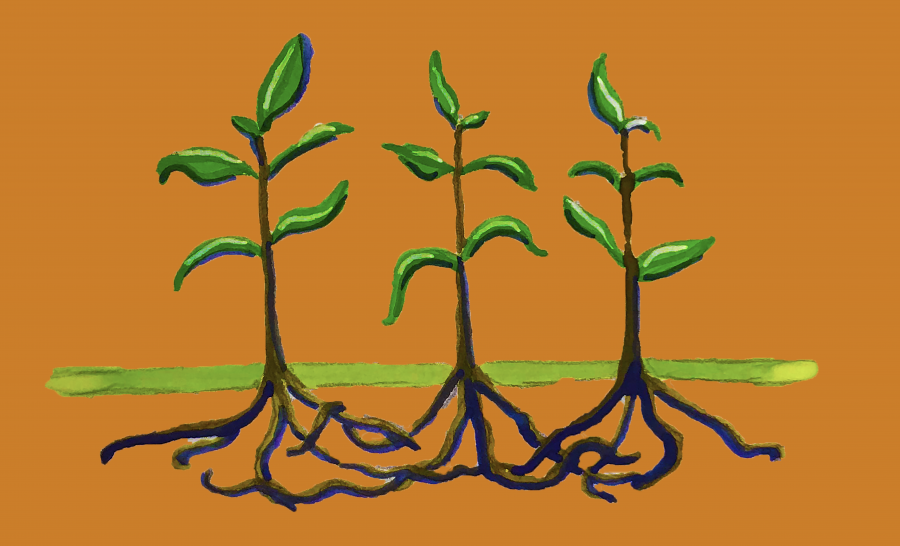Underrepresented. Underresourced. Underserved.
If you’ve spent your whole life with an “under-” attached to your educational experience, then you’ve probably been told that attending UT is a big deal.
But if you’re like I was, you might feel like you’re starting with an asterisk next to your degree plan. Having grown up in an “under-” community, I was followed by one narrative: go to college, make your community proud. Get your degree, because we couldn’t go to college. Speak for us in the places where no one else is listening.
Represent us.
I know this narrative well because for years it’s how I crafted my own. When you come from a community like mine and attend a school like UT, that narrative becomes part of your identity.
Alexandra Martinez, a government and philosophy senior, had a similar experience growing up in Laredo, Texas, and transferring to UT.
“Along with the privilege that I feel, there’s also a lot of responsibility that comes with it because you feel like you have to represent, or you owe something to the people that got you (to UT),” Martinez said.
But there’s a fine line between wanting to represent your community and feeling like you have to rescue your community. That difference is ego.
I grew up in the Rio Grande Valley, and deep love for my community grew into a desperate desire to help it. But my community doesn’t need to be rescued. I’m not the only person pursuing a degree or making my community proud. I’m not the only representative.
Furthermore, after three years at UT, I no longer feel like I have the authority to represent my community. As a student who always had the goal of attending college, I’m not sure I ever had the authority.
In my time at UT, I’ve learned about Critical Race Theory, intersectional feminism, linguistic insecurity and successfully used phrases like “institutionalized ethnographic methodologies.” I know how to write code to create cookies. I’ve seen the original copies of Oscar Wilde’s personal letters in the Harry Ransom Center.
None of these things revoke my membership within my community, but after three years, it’s become clear that I’ve gained a degree of privilege that distances me from some of the people who helped me pursue my education.
“I don’t feel like I’m as privileged as other people at UT,” Martinez said. “But I also do feel distance from my community because I know a lot of people in my community don’t have an opportunity to have higher education, so you’re kind of in the middle”
And while I’ve been growing as a student at UT, my community has faced military occupation, negative media attention, and the aftermath of harsh anti-immigration practices. In El Paso, a city similar to my own, a xenophobic and racist mass shooting by a white supremacist left 22 dead.
There are people in my community working to address these issues. While I sit in my prestigious university classes, my community has been fighting for a better reality. But this doesn’t mean I can’t help — my approach is just different now.
This is a reminder that you don’t need to save your community, but rather you can serve your community.
If your hometown is underrepresented, then be deliberate about how you speak about your community. Share positive stories about your teachers, family members, mentors and friends. Be honest about the harder realities.
If your community is underresouced, find ways that you can give back. When you return home for holidays, volunteer at your school or other places that helped you in your educational journey. If you can’t give money, give time.
If your neighborhood is underserved, then be a servant. Listen to the needs of your community. Be careful to make assumptions based on lessons learned in university classrooms.
UT will provide you with an invaluable learning experience. Use it to contribute to ongoing efforts to improve your community. Don’t try to be a savior — be a servant.
Lopez is a rhetoric and writing senior from McAllen.


















